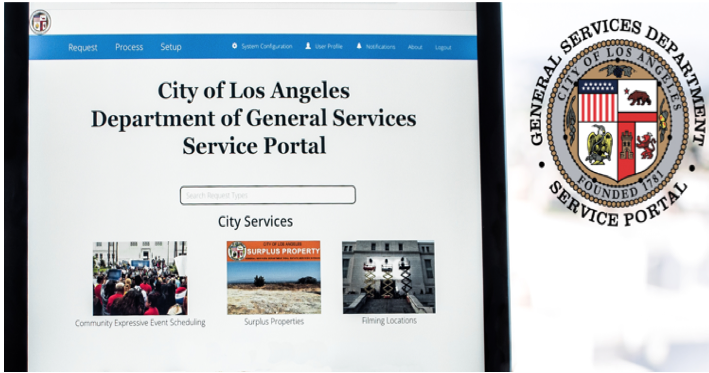NEIGHBORHOOD POLITICS-The General Services Department (“GSD”) provides internal support for City programs in the delivery of services to City residents.
It manages City facilities, equipment, supplies, and support services for the City’s elected officials as well as other departments. They are the behind-the-scenes tacticians allowing every department to function smoothly.
The services they provide include building, procurement and inventory, fueling and fleet management, construction and alterations, custodial, real estate, mail and messenger, parking, emergency management and special event coordination, materials testing, and printing services.
Staffing
GSD lost over 1,000 employees in the years following the Great Recession and has never fully recovered. They fill 50 to 75 positions on average annually. Civil service hiring protocols only allow for lower level employees to get hired into the system. One key problem is that the proprietary departments (LADWP and LAWA) continue to poach experienced GSD employees for higher pay and better benefits.
The civil service hiring process needs to be overhauled to ensure professionals with relevant experience and insight can be hired. The City must also address ways to retain qualified personnel.
Maintenance
How often have we heard the aphorism: An ounce of prevention is worth a pound of cure.
Assets obtained when larger budgets in all departments were the norm still require maintenance today and it is vastly cheaper to do preventative maintenance as opposed to paying elevated rates for emergency repairs or purchasing new equipment at time-inflated prices.
Over 50% of the auto fleet is past its projected life span. Building maintenance is around the 70% level, which is less than ideal.
The cost to replace a roof leaking due to lack of basic upkeep includes not only supplies and labor, usually at a premium rate because there is less time to properly obtain bids, but also the resulting damages to buildings and their contents.
Increased funding for GSD maintenance including their workforce will reduce future spending for many departments.
Asset Management
GSD implemented a new Asset Management System (AMS) in 2017 to manage the City's multi-million dollar owned and leased portfolio on a single platform. Before then, there was no centralized database of all City properties. Monitoring City real estate availability and use will enable more efficient exploitation of these assets.
The AMS also has a building operations module which addresses ongoing and preventative maintenance, asset management, and environmental health and safety features.
Within the AMS lies the new GSD Service Portal for City employees and the public to download information and submit service requests. Since its inception, use of this portal has cut down on wait times and increased efficiency.
It has also streamlined the ability of many departments dependent on GSD to complete their own missions.
The City’s Information Technology Agency should collaborate with the GSD to develop similar websites for other City departments to allow them to communicate more effectively with their own suppliers and Los Angeles stakeholders.
Petroleum Volatility Fund
The expenses of the GSD’s 17 subdivisions – such as building maintenance or mailing services – tend to be fairly predictable. However, its fuel budget is highly volatile and cannot be deferred in the face of real-time needs.
Fuel is in constant demand and the GSD has to maintain a fuel depot capable of refueling all of its vehicles.
Until the City has shifted entirely away from carbon-based fuels, it should create a Petroleum Volatility Fund to defray the cost of fuel spikes and provide a critical source of fuel in case of a natural disaster or other emergency.
Next Steps
Pursuant to the mayor’s demands, the department is providing the infrastructure needed to increase the number of electric vehicles in the City’s auto fleet. This requires a huge array of EV chargers, and it would be wise for the City to get ahead of the curve and invest in even more of them.
This would also be an opportunity for the City to invest in more publicly available EV chargers in the downtown area.
Although the cost of crude oil has taken a tumble, prices at the pump remain high and the future of carbon-based fuels is uncertain. Costs of going electric are easily offset by health considerations for Angelenos (sick days and increased medical expense due to air pollution) as well as the price of gas.
Other more environmentally sound practices may cost more, especially when phasing them in, but the consequences, both direct and indirect, benefit both the City and its inhabitants.
Despite the current economic belt-tightening, the GSD must get more money for preventative maintenance now in order to save substantially more of our tax dollars in the long term.
(Liz Amsden is a member of the Budget Advocates, an elected, all volunteer, independent advisory body charged with making constructive recommendations to the Mayor and the City Council regarding the Budget, and to City Departments on ways to improve their operations, and with obtaining input, updating and educating all Angelenos on the City’s fiscal management.) Prepped for CityWatch by Linda Abrams.














